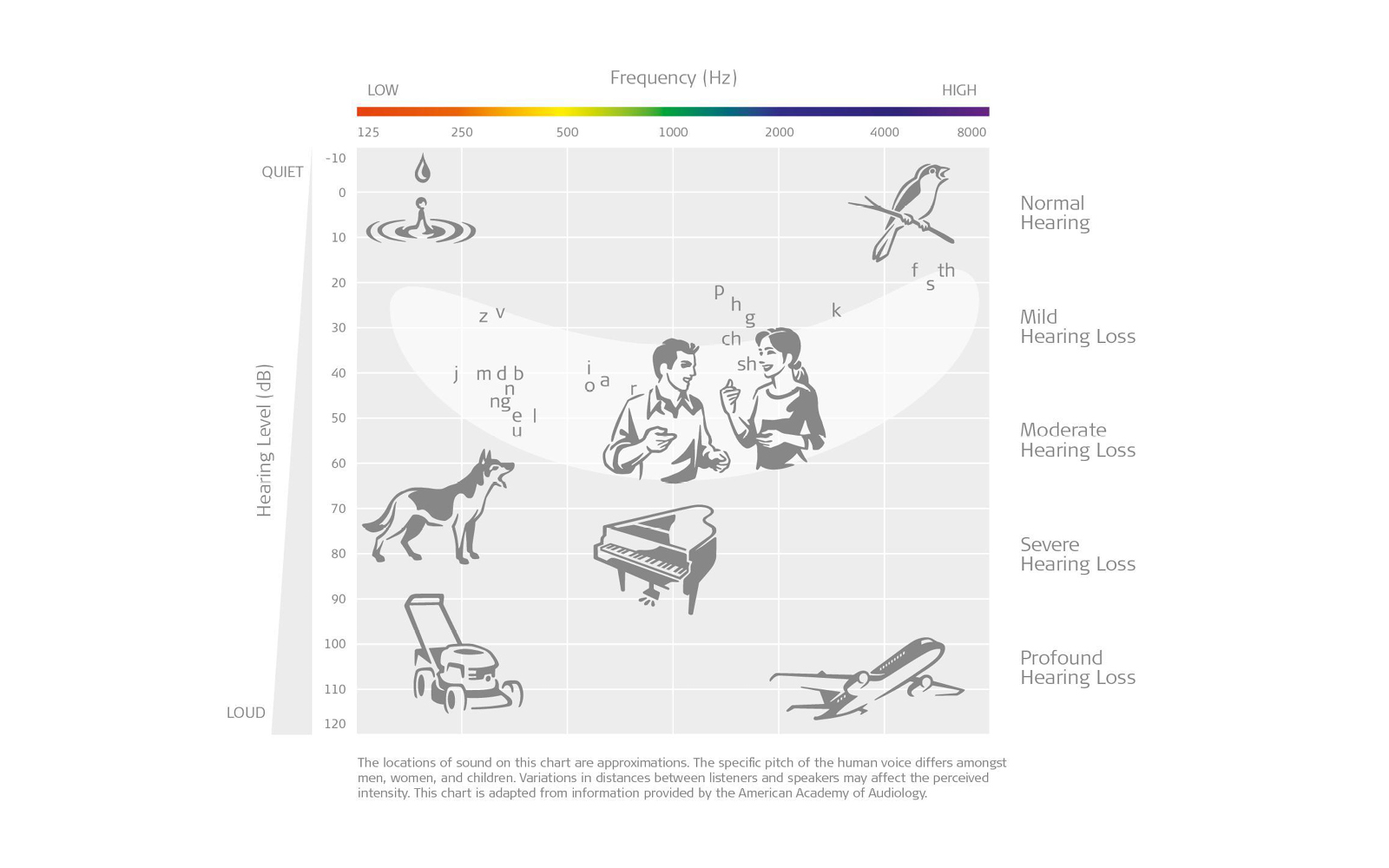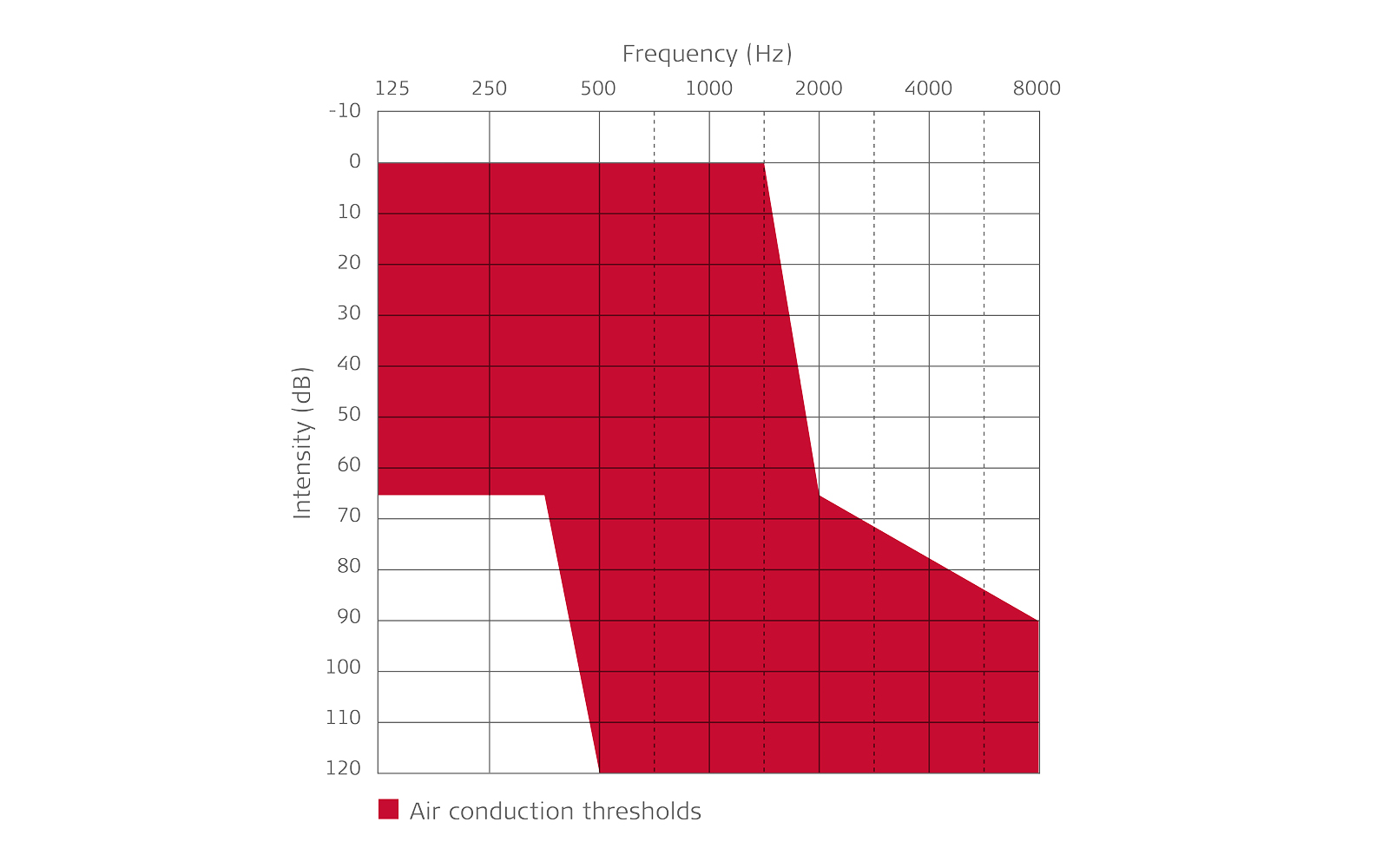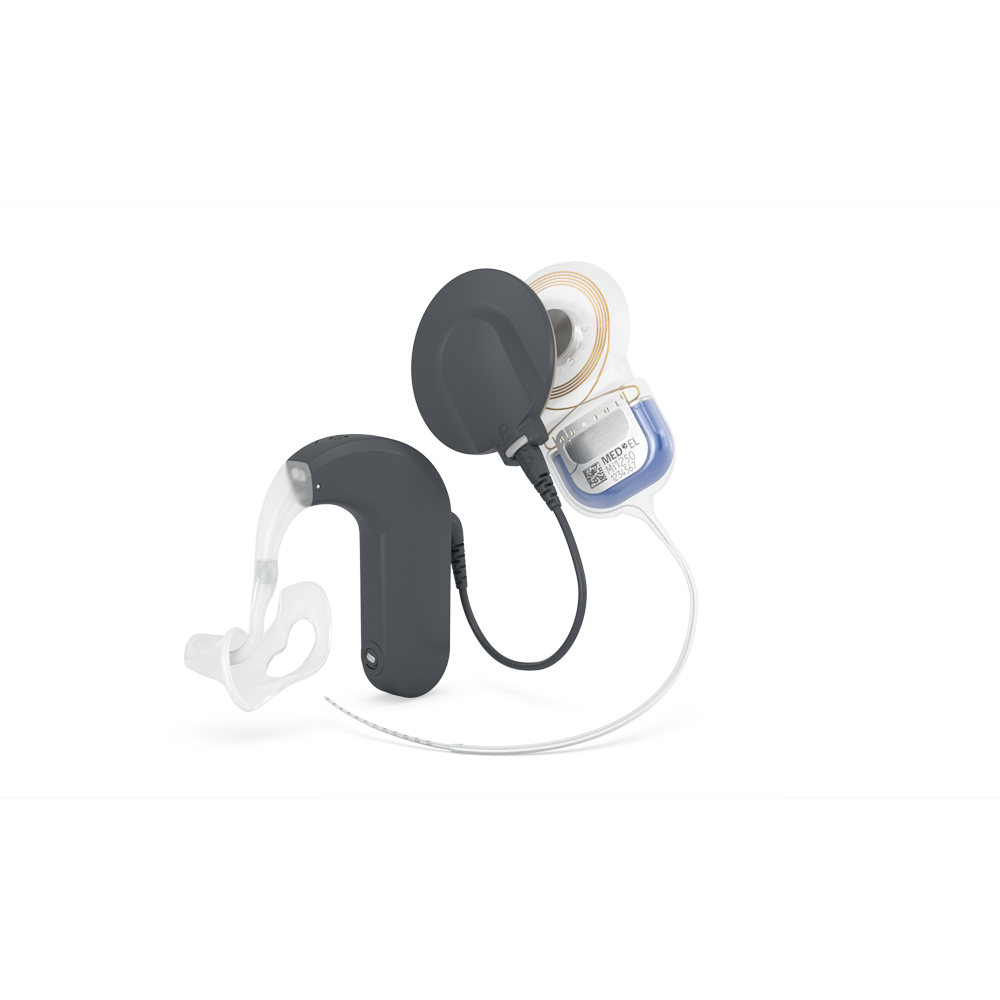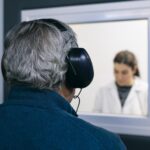
MED-EL
Published Aug 11, 2025 | Last Update Sep 15, 2025
High-Frequency Hearing Loss: Causes, Symptoms, and Treatment
If voices sound muffled or you can’t hear birds chirping or doorbells ringing, you might be experiencing high-frequency hearing loss. Learn what causes it, how to spot the signs, and what treatments can help you reconnect with the sounds you’ve been missing.

What Is High-Frequency Hearing Loss?
The normal speech frequency range typically spans from 250 Hz to 8000 Hz. High-frequency hearing loss refers to difficulty in hearing sounds in the higher pitch range, typically between 2,000 and 8,000 Hz. This condition can make understanding speech challenging, especially in noisy environments, as it affects the perception of high-frequency consonants like “s,” “f,” and “th.”

What Causes High-Frequency Hearing Loss?
While it is more common High-frequency hearing loss can have a variety of causes:
- Getting older: As we age, it’s natural for our hearing—especially high-pitched sounds—to fade. This is called presbycusis.
- Loud sounds over time: Listening to loud music, working around noisy machines, or attending concerts without ear protection can damage your hearing.
- Family history: Sometimes hearing loss is genetic and runs in the family.
- Certain medications: Some drugs can affect your inner ear and hearing—these are called ototoxic medications.
- Ear infections or illnesses: Conditions that affect the inner ear can also lead to hearing loss.
In many cases, high-frequency sensorineural hearing loss worsens over time and is not noticed immediately.
What Are the Symptoms of High-Frequency Hearing Loss?
The first symptoms of high-frequency deafness are usually subtle. Many people notice that they have difficulty hearing certain consonants clearly. Conversations—especially in groups—become difficult to understand. And high frequencies seem to disappear.
These are some typical signs of high-frequency hearing loss:
- Although you can hear voices, you cannot understand every word.
- You no longer hear birds chirping, doorbells ringing, or high pitches.
- You often need to ask the people you are speaking with to repeat themselves.
- You may experience tinnitus, which often occurs along with hearing loss.
Important: High frequencies (above 2000 Hz) tend to be affected by age-related hearing loss first.
Free Online Hearing Test
Try our free online hearing test to find out whether you have hearing loss. This test can provide you with a quick assessment of how well you can hear and communicate in everyday life.
Test Your HearingDiagnosis of High-Frequency Hearing Loss
Early diagnosis is important in order to reduce the risk of additional related problems, such as tinnitus or social withdrawal. There are individual treatment options for the various levels of hearing loss, from hearing aids to hearing implants.
Going to the ENT (ear, nose, and throat) doctor is the first step. They will perform an audiogram, a hearing curve that shows at which frequencies you have hearing loss. Additionally, speech audiometry can be used to evaluate speech understanding at different volumes.

Treatment Options for High-Frequency Hearing Loss
For individuals with hearing loss that affects high frequencies, there are special hearing aids that specifically target and amplify high pitches. And modern hearing systems can even filter out background noise to improve speech understanding.
Treatment Options:
- Mini, open-fit hearing aids
- Electric acoustic (EAS) systems

Electric Acoustic Stimulation
More About EASPrevention of High-Frequency Hearing Loss
The best way to lower your risk of high-pitch hearing loss is prevention
- Avoid loud environments or use hearing protection.
- Don’t ignore the first symptoms of hearing loss.
- Get your hearing tested regularly, especially after the age of 40.
Think You May Have High-Frequency Hearing Loss?
Many people have high-frequency hearing loss. And many of them don’t even realize it. If you’re missing out on high pitches or can no longer understand some consonants, it’s time for a hearing test. With an early diagnosis and modern technology, you can get back to hearing clearly again.
References

MED-EL
Was this article helpful?
Thanks for your feedback.
Sign up for newsletter below for more.
Thanks for your feedback.
Please leave your message below.
Thanks for your message. We will reply as soon as possible.
Send us a message
Field is required
John Doe
Field is required
name@mail.com
Field is required
What do you think?
© MED-EL Medical Electronics. All rights reserved. The content on this website is for general informational purposes only and should not be taken as medical advice. Contact your doctor or hearing specialist to learn what type of hearing solution suits your specific needs. Not all products, features, or indications are approved in all countries.

MED-EL

MED-EL


